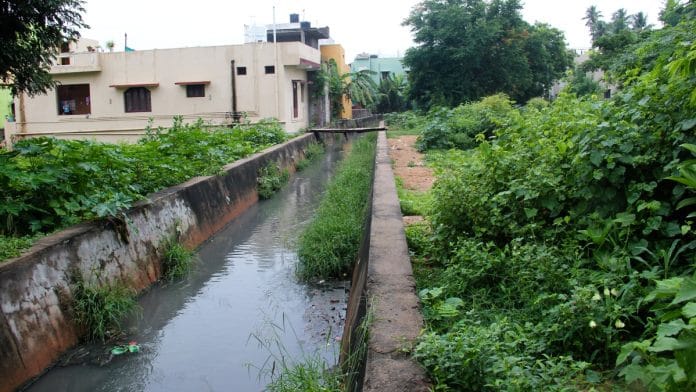Thank you dear subscribers, we are overwhelmed with your response.
Your Turn is a unique selection from ThePrint featuring points of view from its subscribers. If you are a subscriber, have a point of view, please send it to us. If not, do subscribe here: https://theprint.in/subscribe/
Early man like all animals relieved himself anywhere followed by digging a hole, excreting and covering it with dug soil followed by private latrines , pipe lines & water to transfer excreta to the nearest water source.
Indus Valley Sewage System
It had the most modern and innovative sewage system incorporating toilet holes, underground clay pipes, brick lined street drains and septic tanks with a porous base on a slope. The excreta was flushed to the septic tank by water where liquids percolated in the soil and semi dried solids were removed every few weeks/ months and used as a fertilizer.
India, Singapore & Denmark
When Indian sub-continent had neat orderly brick lined sewer system the areas where present day Denmark and Singapore exist were storing excreta in cesspools or burial chambers. At present Singapore has the most modern Deep Tunnel Sewerage system and Denmark the most innovative sewage system where phosphorus and other critical materials are recovered, and renewable energy is produced. Whereas we are stuck with transporting sewage across cities to treatment plants which rely on water and electricity. And thousands of shallow pipelines and manholes with stealable covers.
Centralized versus decentralized Sewage System
Centralized system is expensive, needs super sucker machines, suction cum jetting machines, portable pumps and treatment plants. A decentralized system is simple, cheaper and earth friendly requiring only bio pipes and septic tanks.
For a smaller and richer countries centralized system is good but for big countries it would be too cumbersome.
Reasons for failures of Government Agencies
Complex, corrupt and expensive solutions for sewage management.
Spending on ridiculous solutions like putting sensors on manhole covers than protecting sewage workers entering the manholes.
Faulty work culture with haphazard sporadic bursts of work than year round work.
Multiple authorities to deal with one issue. For example silt, sludge and debris that chock the drains is managed by irrigation and flood control department, municipalities and an integrated drain management cell.
Suggestions for Government Agencies
Opt for natural/biological wastewater treatment systems which rely on sunlight, temperature, filtration, adsorption, sedimentation, biodegradation, etc.
Opt for self-cleaning and easy flow of sewage by gravity and hydraulic pressure with egg shaped bio pipes laden with bacteria to remove micro biological pathogens and making sewage water suitable for irrigation.
Opt for proactive maintenance schedule year round clean functional drains where cleaners also remove the sludge. Opt for decentralized sewage management system.
Suggestion for Private companies
Replicate Singapore’s sewage system as your CSR activity for smaller cities.
Design egg shaped bio pipes.
Design smarter septic tanks
Organize non-detachable, non-stealable man-hole cover design competitions , man hole cover card game and bring youngsters in the fold of sewage management. Design and distribute full waterproof suits and oxygen masks attached to a oxygen cylinder for sewage workers.
Suggestion for Resident Welfare Organizations
Come forward to set decentralized sewage management system in your colony. Decentralized sewerage system is the collection and treatment of sewage from clusters of homes, communities or institutional facilities in an underground tank where micro-organisms treat the human waste without any chemicals. It does not require extensive and expensive network of pipes.
It’s benefits are saving colony water, getting organic manure, contributing to nation building and better environment for all to see and experience.
Suggestions for individuals
Use reuseable or biodegradable diapers. Use menstrual cups. Use brown toilet paper. Never clog drains. Cover open drains. Use drain covers with fine mesh. Use boric acid around sewage pipes and manhole covers .
Last words
Government agencies, private companies, resident welfare organisations and individuals will have to urgently follow above mentioned suggestions to avert disasters.
These pieces are being published as they have been received – they have not been edited/fact-checked by ThePrint


